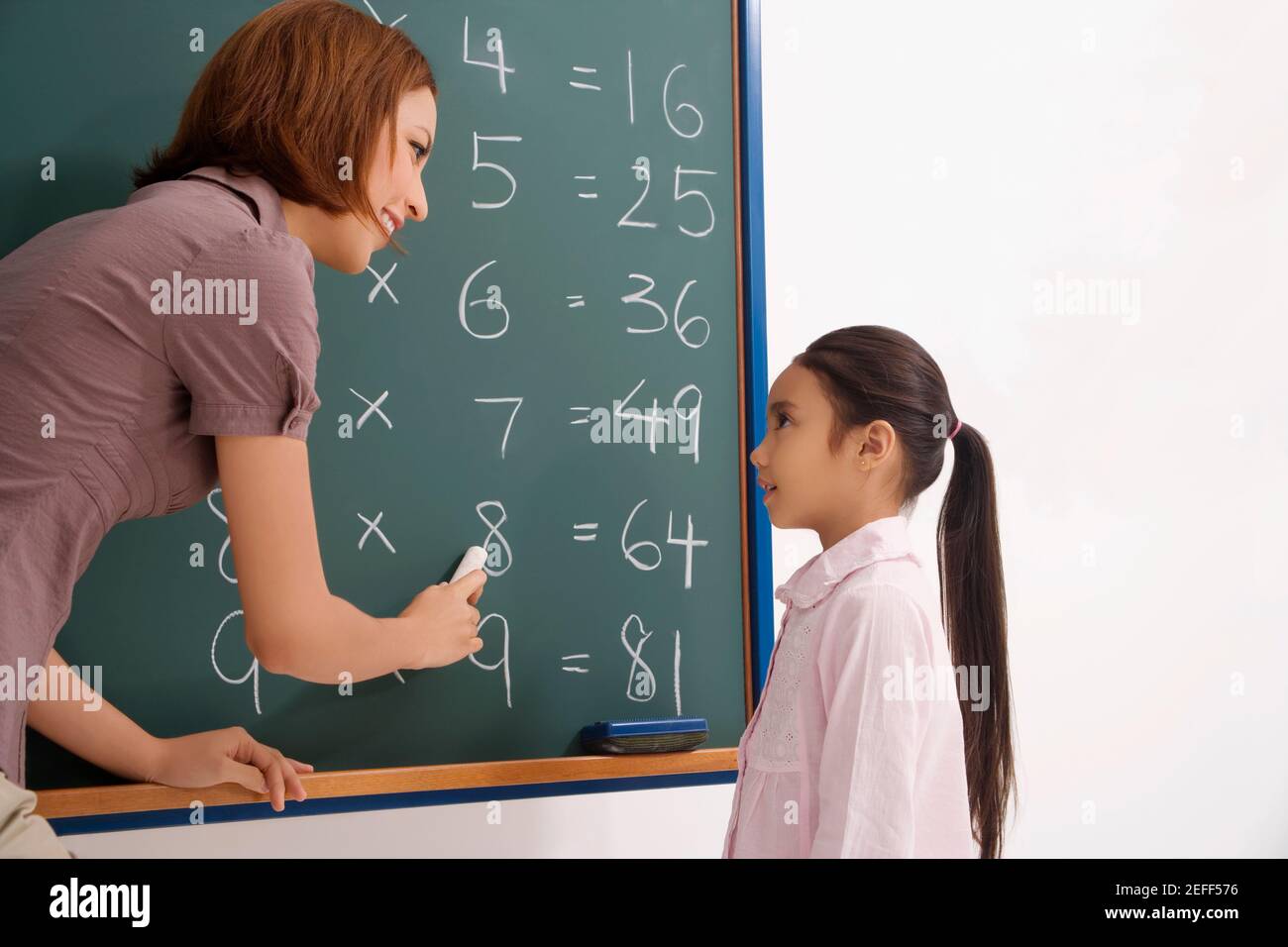Master Primary Science Concepts with Quality Tuition in Singapore
Master Primary Science Concepts with Quality Tuition in Singapore
Blog Article
Discover the Important Benefits of Recognizing Key Science for Young Learners
The significance of key science education and learning for young learners expands far past mere expertise acquisition; it offers as a fundamental column in creating necessary skills such as important thinking, analytical, and creative thinking. Engaging with clinical concepts through inquiry-based and interactive activities not only grows inquisitiveness but likewise lays the foundation for resilient, positive students.
Enhancing Important Thinking Skills
Promoting essential thinking skills in young students is essential for their cognitive advancement and future scholastic success. Essential thinking allows kids to assess information, assess evidence, and make educated choices, which are vital skills in today's information-rich society. By involving in clinical questions, young learners can enhance these skills as they check out ideas through observation, testing, and reasoning.
In primary scientific research education and learning, teachers can promote vital thinking by encouraging trainees to ask concerns, formulate hypotheses, and conduct experiments. This hands-on approach allows kids to practice analytic and create logical thinking abilities. When students examine the buildings of products or the principles of motion, they find out to evaluate their searchings for seriously and draw conclusions based on proof.
Furthermore, discussions and collective tasks can advertise important thinking by giving chances for learners to express their thoughts, challenge presumptions, and think about varied point of views. By creating an encouraging atmosphere that values query and reflection, instructors can nurture essential believing abilities that empower young students to become long-lasting learners and independent thinkers. Eventually, boosting these skills lays a durable foundation for their future scholastic endeavors and personal development.
Cultivating Inquisitiveness and Exploration

Key science education gives an organized environment where young students can check out various sensations with hands-on experiments and observations. By permitting them to engage with materials and engage in inquiry-based understanding, teachers create possibilities for kids to formulate theories, evaluate their concepts, and draw conclusions. Such experiences support a sense of marvel and excitement regarding science.

Structure Confidence in Problem Solving
Structure confidence in analytic is a vital element of main science education and learning that equips young learners to come close to challenges with strength and creativity - primary science tuition Singapore. They establish essential abilities in critical thinking and evaluation when children are motivated to involve with scientific ideas via hands-on activities and inquiry-based understanding. This procedure not only boosts their understanding of scientific principles however also promotes a feeling of ownership over their discovering
To construct confidence, educators must develop a supportive atmosphere where blunders are considered as opportunities for growth as opposed to failings. This urges students to take risks and check out various remedies to problems. By offering scaffolding and assistance, educators can aid pupils navigate complex jobs, gradually enhancing their self-reliance in analytical scenarios.
Furthermore, collective learning experiences, such as group projects or experiments, can further enhance students' self-confidence as they find out to express their ideas and listen to others' point of views. These interactions nurture social skills and enhance the concept that analytical is typically a collective undertaking. Eventually, cultivating confidence in analytical prepares young learners for future scholastic obstacles and outfits them with the tools necessary for long-lasting knowing.
Motivating Creative Thinking and Technology
In the realm of key scientific research education and learning, motivating creativity and technology is crucial for cultivating a dynamic discovering atmosphere. By fostering a society where young learners can discover ideas and experiment freely, instructors help pupils create vital thinking abilities and a passion for exploration. Imagination in scientific research motivates youngsters to ask concerns, devise theories, and engage in hands-on tasks that stimulate their creative imagination.
Integrating flexible projects and inquiry-based discovering into the educational program allows trainees to share their distinct point of views and remedies. When charged with addressing a problem relevant to their environment, trainees can conceptualize numerous methods, leading to innovative end results that display their originality. This not only strengthens their understanding of clinical principles but also imparts a feeling of possession over their learning procedure.
Furthermore, creative science education and learning supports cooperation amongst peers, as students typically share concepts and improve each other's understandings - primary science tuition Singapore. This joint her explanation spirit advertises not just innovation but likewise important social skills. Hence, by focusing on creative thinking and innovation in primary science education, we empower young students to think seriously, welcome obstacles, and envision opportunities, laying a solid structure for long-lasting discovering and exploration
Getting Ready For Future Discovering Difficulties
Young learners' ability to browse future understanding obstacles rests on a strong structure in key scientific research education. This foundational understanding equips pupils with essential assuming abilities and a systematic strategy to analytic, necessary for dealing with complex concerns in an ever-evolving globe. Primary scientific research promotes inquiry-based knowing, encouraging pupils to ask concerns, explore theories, and take part in hands-on experiments.
As they develop these abilities, learners come to be skilled at examining data, identifying patterns, and attracting notified conclusions. Such expertises are crucial not just in clinical areas yet additionally in innovation, engineering, and math (STEM), where interdisciplinary expertise is progressively essential.
Moreover, main scientific research education grows a sense of inquisitiveness and resilience in young learners, enabling them to see challenges as chances for development. As they experience and get rid of barriers in their scientific expeditions, they build confidence in their capability to innovate and adapt.
Eventually, a solid foundation in main scientific research not just prepares young learners for academic quests yet likewise equips them with the devices necessary for lifelong discovering and flexibility in a rapidly altering worldwide landscape. By buying main scientific research education and learning, we are spending in the future potential of our learners.
Final Thought
Recognizing key scientific research is vital for young students, as it cultivates critical thinking, curiosity, and imagination. Engaging with scientific ideas with hands-on experiments boosts analytic capacities and constructs resilience. This foundational knowledge not only equips students to evaluate data and recognize patterns but also nurtures an inquiry-based state of mind. my latest blog post Eventually, the benefits of primary science education prepare youngsters for future scholastic searches and impart lifelong understanding behaviors essential for growing in an ever-evolving globe.
The relevance of key scientific research education and learning for young students prolongs much beyond mere knowledge acquisition; it serves as a fundamental column in developing vital abilities such as important thinking, analytic, and imagination. By developing a helpful atmosphere that values questions and reflection, instructors can nurture critical believing abilities that empower young students to become lifelong students and independent thinkers. Thus, by focusing on creative thinking and development in key science education and learning, we encourage young learners to assume critically, accept obstacles, and envision opportunities, laying a solid foundation for long-lasting learning and expedition.
Young students' ability to browse future learning challenges click for more info pivots on a strong foundation in main scientific research education.Comprehending primary science is critical for young learners, as it fosters critical reasoning, curiosity, and creative thinking.
Report this page